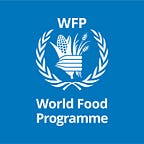Displaced by drought and conflict, Afghan families develop new skills & start new lives
“This training will help us to stand on our own feet”
--
Drought and conflict are two of the world’s leading causes of hunger.
In Afghanistan, they are also forcing hundreds of thousands of families from their homes in search of safety and survival.
On a foggy and cold day in Mazar-i-Sharif City, a group of women finish their third month of vocational skills training. For 800 people who have been displaced by violence, this has been a chance to gain new skills in order to start new businesses far from home.
In 2018, more than 300,000 Afghans were forced from their homes because of conflict. Many are now living in Mazar-i-Sharif — the largest city in northern Afghanistan. Families have come here in search of safety and to earn an income after their farms were destroyed by a severe drought.
Atefa is one of the more than 65 women who has joined the vocational skills training, after she was forced to flee her village in Chamtal district, Balkh. “My father had been injured four months earlier in crossfire between Taliban and military forces,” she said.
Initially, Atefa and her family received food from WFP to last for two months, which is the usual assistance provided to vulnerable families displaced by conflict. Then, she was selected to join the vocational training and has been receiving a monthly voucher for 2,500 Afghani (US $33) from WFP while she learns. This amount covers her family’s food needs and is redeemable for food of their choice at specific retail shops in her neighbourhood.
Atefa is inspired to use her skills to earn an income. “I want to open my own business making hand bags,” she said. “I will also teach what I learned to my sisters so that we can work together in our home and will be able to support our family.”
Making handbags is a valid business prospect in Mazar-i-Sharif, with urban residents as potential customers. In rural areas, however, families have different needs. In Dehdadi district of Balkh province, women in the vocational skills training programme are learning to spin thread from sheep wool. Every thread is 250 metres long and can be used to weave famous Afghan carpets.
For 30-year-old Shayesta, the conflict was not the only reason to leave her village in Sherin Tagab district of northern Faryab province: her family could not collect any food from their fields due to the severe drought that has gripped two thirds of the country. “Once the drought and the fighting are over, I want to go back to my village,” she said.
Besides making the thread that will allow her to earn income for her family, Shayesta and her classmates also learn making quilts and basic literacy skills. For Shayesta who never went to school in her life, this is a first. Proudly, she writes her name into a notebook of a WFP staff member. A small first step towards improved career prospects.
Her classmate Zeba was displaced from Qaisar district of Faryab province and she believes this training is a positive change in her life: “We were in a difficult situation [in our village]. This training will help us to stand on our own feet in the future and the assistance we receive from WFP during the training helps us to get through this critical time,” she said.
In the courtyard of the training centre, elderly women make quilts with the thread and left-over wool. The blankets will be distributed to the displaced families to keep themselves warm during the harsh winter where temperatures regularly drop below freezing.
More work and a higher salary
In another training centre in Mazar-i-Sharif, men are learning professional masonry skills. With this training, their chances to earn a decent living are greatly increased.
The current drought forced Imamuddin from his home and fields in Faryab province one year ago. He is sure that the training will help him generate the income he needs: “Like many other displaced men I tried to make money as a day labourer in the city. I rarely earned enough to pay for food for my family despite all the houses that are being built in the city. As a mason, I will get more work and earn a higher salary.”
The initial food assistance for displaced that is combined with vocational skills training is an important element in WFP’s strategy of linking emergency assistance with longer-term action that helps conflict affected families to become self-reliant.
In 2018, WFP supported more than 14,200 individuals through several hundred vocational skills training centres across the country — nearly 12,000 of them were women. Participants have learnt 15 different types of skills including carpentry, making handicrafts, carpet weaving, beauty treatments, mobile phone repairs, fruit and vegetable processing, shoe making, plumbing and more.
This programme is made possible thanks to support from DFAT (Australia), the Government of Sweden and the Netherlands and USAID.
Written by Wahidullah Amani
Read more about WFP’s work in Afghanistan
